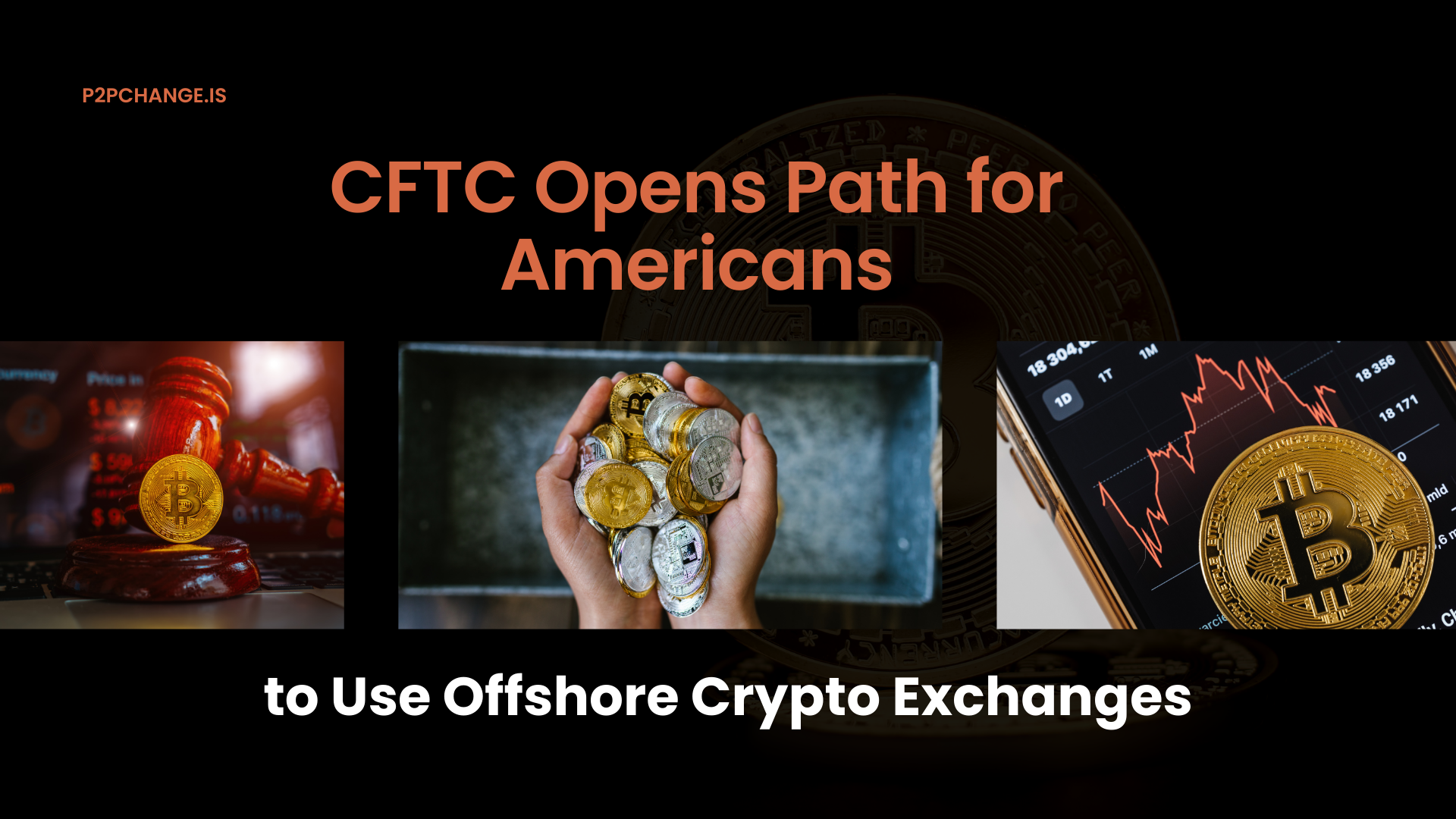
The U.S. Commodity Futures Trading Commission (CFTC) has issued a staff advisory that, in effect, re‑opens a regulatory pathway for Americans to access foreign crypto trading venues—provided those platforms register with the agency as Foreign Boards of Trade (FBOTs). The move, welcomed by market participants as long‑overdue clarity, follows months of debate over how global crypto venues can legally interact with U.S. customers.
What happened
On Aug. 28, the CFTC’s Division of Market Oversight released CFTC Letter No. 25‑27, a staff advisory that reaffirms and clarifies the FBOT framework. Under long‑standing CFTC rules (Part 48), a foreign exchange may apply to register as an FBOT and then offer direct electronic access to identified U.S. members or participants—so long as it meets conditions around surveillance, reporting, and compliance. The new advisory is framed as guidance to quell confusion generated by recent enforcement actions and shifting interpretations. In a companion press release, Acting Chair Caroline Pham said the goal is to «promote regulatory clarity and access to markets» by restating how non‑U.S. platforms can serve Americans within the law.
What it does—and what it doesn’t
Does:
- Reaffirms the legal route for foreign exchanges to serve U.S. users as FBOTs, including digital‑asset venues that list derivatives.
- Details the application and conditions (surveillance sharing, reporting, compliance controls) required before any U.S. access is permitted.
- Signals a welcoming stance from the CFTC to global firms that previously exited the U.S. market to return under supervision.
Doesn’t:
- Instantly authorize every offshore platform for U.S. retail. Firms must complete the FBOT registration and comply with ongoing conditions.
- Erase spot‑market complexities. The CFTC’s direct remit still centers on derivatives. (Separately, earlier this month the agency outlined a path for listed spot crypto trading on registered futures exchanges, a distinct initiative that will run in parallel.)
- Override other laws. State rules, AML/KYC requirements, and SEC jurisdiction (for securities) still apply.
Why now
The advisory comes as U.S. regulators face sustained pressure to onshore liquidity and reduce incentives for investors to route trades to opaque venues abroad. Industry coverage framed the move as the CFTC «inviting» crypto firms that left the U.S. to come back under the FBOT umbrella, while mainstream financial media emphasized the policy’s potential to reconnect American traders to global order books—under supervisory hooks. It also follows a separate August development in which the CFTC signaled it would permit listed spot crypto contracts on CFTC‑registered exchanges, complementing the derivatives focus of the FBOT program.
What foreign exchanges would need to do
To qualify, a platform must:
- Apply under Part 48 and demonstrate it is a bona fide foreign board of trade in a regulated home jurisdiction.
- Enter surveillance‑sharing arrangements and provide timely data to the CFTC.
- Define which U.S. persons may access the venue (typically identified members/participants) and through what connectivity.
- Maintain compliance programs (market abuse monitoring, AML/KYC expectations, recordkeeping).
- Honor reporting and emergency authority requirements so U.S. regulators can act if market integrity is threatened.
In practice, this means no overnight flip‑switch for retail. Large venues—think global platforms branded outside the U.S.—would need to formalize risk controls and align matching engines, surveillance, and client onboarding with CFTC expectations before Americans can legally log in.
Industry impact: who wins, who waits
- U.S. traders: If implemented, expect broader product menus and deeper liquidity when accessing global derivatives markets through registered channels. For now, nothing changes until venues are actually approved as FBOTs and turn on access.
- Global exchanges: The advisory offers a clearer, defensible route back into the U.S. market without fully becoming domestic designated contract markets (DCMs). The trade‑off is heavier reporting and surveillance.
- U.S. exchanges: More competition—yet on leveler, supervised terms. If foreign venues enter under FBOT rules, incumbents may push product innovation (e.g., basis products, cross‑margining) and tout U.S. customer protections as a differentiator.
- Regulators: The FBOT route creates visibility into cross‑border activity and may reduce regulatory arbitrage, provided enforcement and data‑sharing keep pace.
Open questions
- Scope for spot trading: The FBOT framework is derivatives‑oriented. How the CFTC’s separate listed‑spotinitiative interacts with FBOT approvals will determine how much of the offshore spot experience can be replicated legally in the U.S.
- Retail access vs. member access: Part 48 contemplates identified members or participants—not necessarily broad retail. Expect further clarifications on onboarding flows, intermediaries, and safeguards.
- Coordination with the SEC: Tokens deemed securities will remain outside the CFTC’s spot authority. Firms will need clear asset‑classification and disclosures to avoid overlap problems.
- Timeline: FBOT applications are non‑trivial. Even eager applicants will need months to align systems, policies, and governance.
Bottom line
The CFTC’s FBOT advisory doesn’t throw open the gates, but it does mark the clearest route in years for Americans to legally access offshore crypto exchanges—so long as those platforms register and comply. For traders, the message is to watch who actually files and gets approved. For policy makers, the test will be whether supervised cross‑border access truly reduces risk while restoring choice and liquidity for U.S. customers.